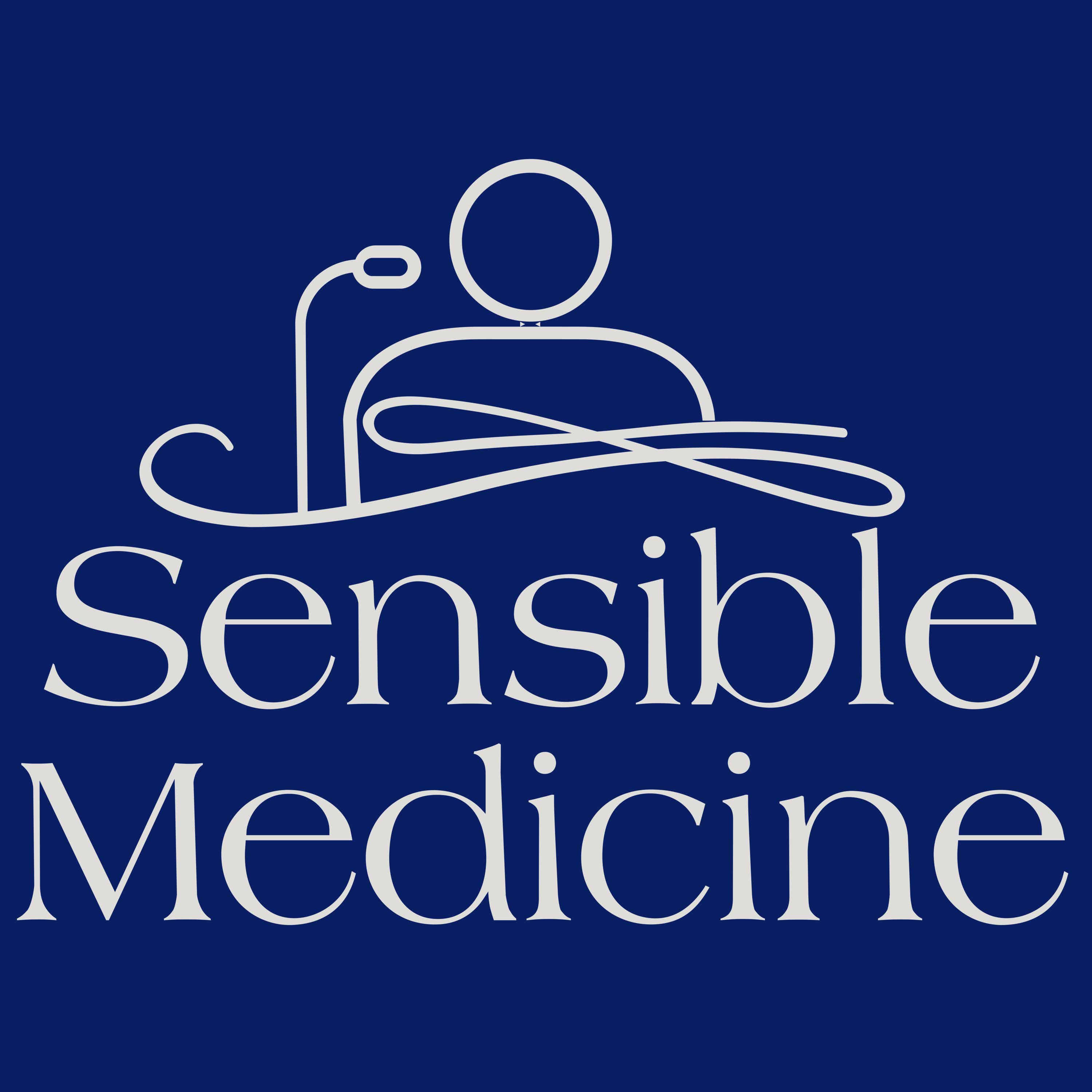

Sensible Medicine
Sensible Medicine Authors and Editors
Common sense and original thinking in bio-medicine
A platform for diverse views and debate www.sensible-med.com
A platform for diverse views and debate www.sensible-med.com
Episodes
Mentioned books

34 snips
May 16, 2024 • 40min
A Novel Approach to AF Ablation
In this engaging discussion, Piotr Futima, a cardiac electrophysiologist from Poland, explores innovative approaches to ablate atrial fibrillation (AF). He reveals how pandemic constraints sparked groundbreaking techniques using a single catheter for right atrial ablation, targeting ganglionated plexi without anesthesia. They delve into vagally mediated AF, explaining its link to high vagal tone in younger patients. The conversation raises intriguing questions about the unknown mechanisms of pulmonary vein isolation and the importance of precise patient selection for effective treatment.

May 11, 2024 • 42min
Video version of our podcast
We discuss the state of medical education, Harvard music video, causal language at JAMA and more This is a public episode. If you'd like to discuss this with other subscribers or get access to bonus episodes, visit www.sensible-med.com/subscribe

May 10, 2024 • 42min
Cifu, Mandrola, Prasad
Video will be available to paid subscribers This is a public episode. If you'd like to discuss this with other subscribers or get access to bonus episodes, visit www.sensible-med.com/subscribe

Apr 30, 2024 • 23min
A Discussion with Dr. Dena Zeraatkar regarding analytic flexibility in observational studies
Gosh was this a great conversation about her recent paper on specification curve analysis of nutritional observational studies. Here is Dr. Zeraatkar’s bio:Dena Zeraatkar, PhD is an Assistant Professor in the Departments of Anesthesia and Health Research Methods, Evidence, and Impact (HEI) at McMaster University. She earned her doctoral degree at McMaster University in the Health Research Methodology graduate program. Following her doctoral training, she pursued postdoctoral training at Harvard Medical School, for which she was awarded a Banting scholarship.Her research centers on evidence synthesis and evaluation—identifying and appraising research to optimally inform healthcare and public health decisions. She often works in areas in which the evidence is complex or conflicting, examples of which include nutrition and COVID-19 therapeutics. For her research, in 2023, she was awarded a Gairdner Early Career Investigator Award.First, it would help to read my comments yesterday on the paper. Dr. Zeraatkar is well-spoken, clear and she explains a complicated topic in simple terms. Her work is exactly the type we love at Sensible Medicine. Stay for her final comment. It made me so happy. Sensible Medicine is a reader-supported publication. To receive new posts and support our work, consider becoming a free or paid subscriber. This is a public episode. If you'd like to discuss this with other subscribers or get access to bonus episodes, visit www.sensible-med.com/subscribe

Apr 12, 2024 • 10min
Friday Reflection 38: Yesterday’s Solutions; Today’s Problems
The Thomas Sowell quote, “On closer scrutiny, it turns out that many of today's problems are a result of yesterday's solutions” has been ringing in my head a lot lately. This is a public episode. If you'd like to discuss this with other subscribers or get access to bonus episodes, visit www.sensible-med.com/subscribe

Apr 4, 2024 • 44min
Yet Another Excellent Explainer About P-Values in Randomized Trials
Professor Erik Van Zwet from Leiden University discusses P-values in randomized trials, trial power, and trial replication. They explore the significance of P-values in interpreting study outcomes, the challenges of sample size, and understanding effect size. The conversation clarifies the unexpectedness of results and emphasizes the importance of historical data for comprehensive analysis in clinical settings.

Mar 8, 2024 • 8min
Friday Reflection 37: Why I Teach (acceptable and less acceptable reasons)
Why have I been committed to medical education? Some of the reasons are admirable but not terribly novel. Others are a bit hard to admit, but just as true. This is a public episode. If you'd like to discuss this with other subscribers or get access to bonus episodes, visit www.sensible-med.com/subscribe

Feb 2, 2024 • 8min
Friday Reflection 36: Why Don’t Doctors Want to See Patients?
Friday Reflection 35: Why Don’t Doctors Want to See Patients?I was asked “Why is it that doctors don’t want to see patients?” and I could not answer the question. Fourteen months later, here is my response. This is a public episode. If you'd like to discuss this with other subscribers or get access to bonus episodes, visit www.sensible-med.com/subscribe

Jan 25, 2024 • 8min
New Austrian Study Shows Boosters do NOT reduce COVID19 deaths in people who had COVID
Examining the bias in observational studies and the findings of a new Austrian study on the effectiveness of boosters in individuals who have recovered from COVID-19. Discussion on the Effectiveness of Booster Vaccinations and COVID-19 Death Rates: critique of a study from Austria that examines the impact of booster vaccinations on testing positive for COVID-19 and argues against boosters for temporary reduction in cases. Lack of Effectiveness of Booster Shots in Individuals with Previous COVID-19 Infection: study showing no reduction in COVID-19 deaths from booster shots in individuals with prior COVID-19 infection, highlighting durable natural immunity and critiquing US policy and FDA approval of boosters.

Jan 18, 2024 • 49min
Math Professor Ben Recht and I Discuss P-values and Confidence Intervals
Math Professor Ben Recht from UC Berkeley simplifies stats for doctors, discussing P-values in clinical trials, statistical significance, sample size influence, navigating statistical power, deciphering data in research papers, dangers of subgroup analyses, treatment effects in medicine, and patient selection in cancer trials.


